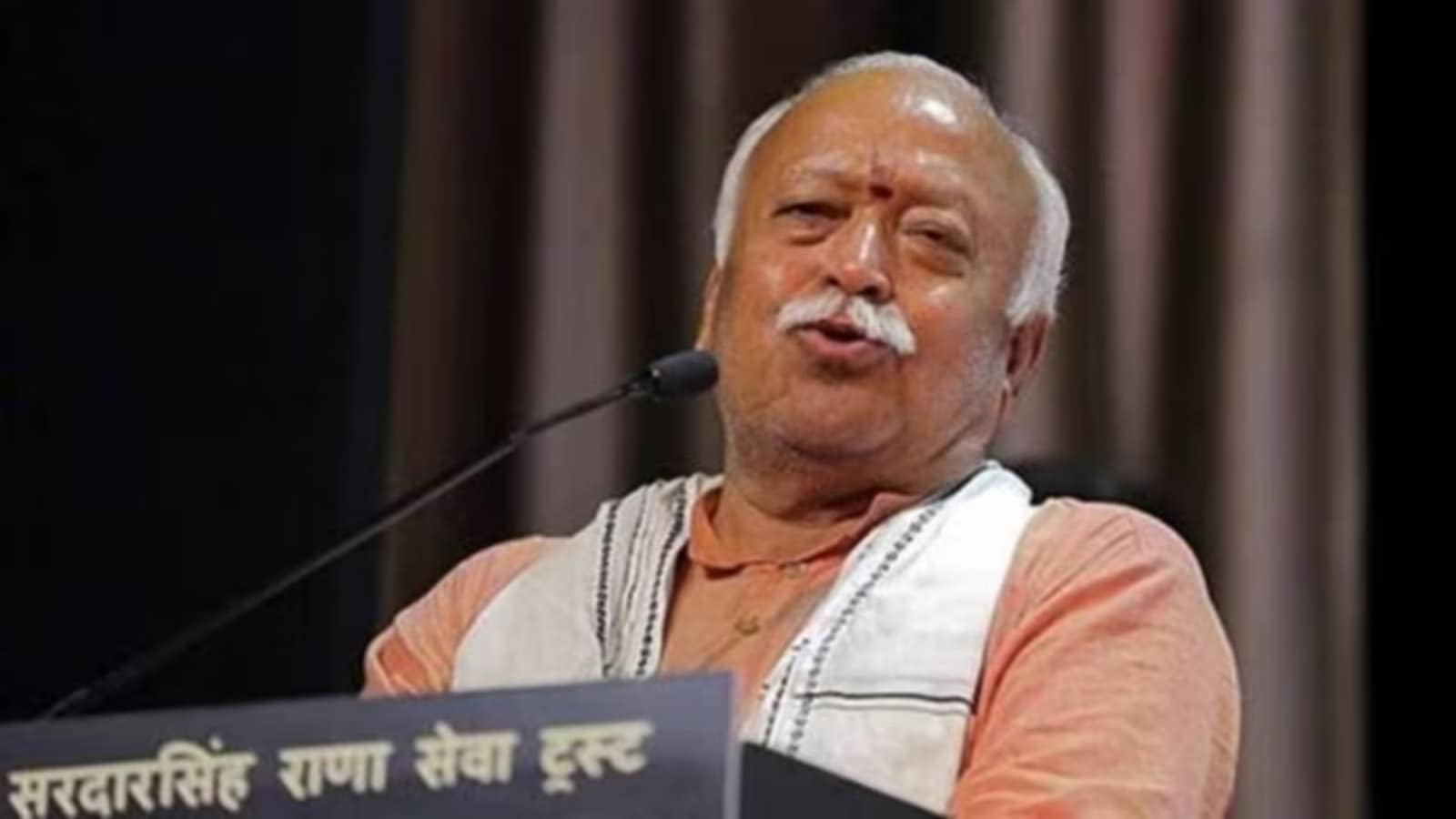A recent op-ed by Santosh K Kiro (IE, January 15), critiquing the RSS sarsanghchalak Mohan Bhagwat’s remarks on tribal communities and their place in India’s nationhood, presents a deeply flawed understanding of both the context of the original statement and the RSS’s ongoing engagement with them. The piece, though well-intentioned, misrepresents the views of the RSS. It is important to set the record straight.
At the heart of the author’s critique is a statement attributed to Bhagwat, which he reportedly made while quoting late President Pranab Mukherjee. The op-ed contends that Bhagwat’s words about ghar wapsi — the reconversion of tribal communities being necessary to prevent them from turning “anti-national” — are an affront to their identity. However, this interpretation is a misreading of both Bhagwat’s remarks and Mukherjee’s original statement.
What Bhagwat referred to was not an indictment of tribes as inherently anti-national but a warning against the growing influence of secessionist ideologies, especially in tribal heartlands and border areas. This is not a baseless assertion but a reflection of real threats posed by movements like the demand for a Christian homeland in the Northeast and the ongoing Maoist insurgency in central India. Mukherjee himself had spoken about the importance of integrating tribal communities with the Indian mainstream in order to thwart separatist ideologies, a sentiment echoed by Bhagwat.
The author’s stance fails to distinguish between legitimate concerns over national security and the portrayal of the tribal people as disloyal. Bhagwat’s statement, far from suggesting a general suspicion toward tribal communities, is an appeal to ensure that they are not swayed by divisive forces. To interpret it otherwise is to ignore the larger context of the growing challenges faced by India’s security apparatus.
The RSS, contrary to what the author suggests, has always considered tribal communities as integral to the nation. While mainstream historical narratives have often focused on leaders associated with Gandhian satyagraha, the RSS has ensured that the heroic resistance of the tribal people is acknowledged as part of our collective struggle for freedom.
As the author rightly points out, their contribution to the Indian freedom struggle, particularly in armed resistance against British colonialism, is undeniable. Tribal heroes like Birsa Munda and Rani Gaidinliu stand as exemplary figures who fought valiantly for India’s Independence. In fact, it is the RSS which has relentlessly celebrated their contributions and has been instrumental in bringing these forgotten tribal heroes to the forefront of our national consciousness. This is not a matter of trying to fit tribal history into a “Hindu nationalist” narrative, but about including the tribal people within the larger framework of India’s struggle against colonial oppression.
A significant part of the Sangh Parivar’s work in the tribal areas is carried out by the Vanavasi Kalyan Ashram, an organisation dedicated to the welfare of tribal communities. The Ashram has long been involved in providing basic amenities like schools, hospitals, hostels and libraries to tribal areas, such as in central and northeastern India. Kalyan Ashram currently runs 177 formal schools which teach over 30,000 tribal students, 3,673 non-formal schools such as Ekal Vidyalayas which teach over 80,000 students, in addition to 230 hostels which house 8,750 students.
Additionally, the organisation also operates 17 hospitals, 385 medical camps, 20 daily and 35 weekly healthcare centres and many other healthcare facilities that benefit 10 lakh patients in tribal areas. It would be erroneous to dismiss this as an effort to undermine tribal identity; on the contrary, the RSS views such interventions as part of a broader effort to empower tribes and integrate them into the national framework without eroding their unique cultural practices.
Additionally, the author’s criticism of the RSS’s stand on ghar wapsi is perhaps the most significant misunderstanding. The RSS does not promote forced or coerced reconversion of the tribals to Hinduism, as the author implies. Instead, the RSS supports the preservation and promotion of indigenous tribal faiths that are distinct from Vedic Hinduism. For example, in the Northeast, RSS affiliates have supported the Rangfrah, Donyi-Polo and Seng Khasi movements. These are indigenous tribal faiths, and the RSS’s involvement in them is about encouraging their recognition and protection, not about conversion to Hinduism. It was the same Mohan Bhagwat who had once remarked, “Indigenous faith is the mother of Hinduism.”
most read
In fact, it is crucial to recognise that the RSS’s engagement with tribal communities has been driven by a desire to protect their religious and cultural heritage from external threats, including forced conversions to other religions. The RSS’s position is not to assimilate tribal communities into a single, uniform religious identity but to help them preserve their distinctiveness while participating in the broader Indian identity.
The RSS is neither a body that seeks to marginalise tribal communities, nor one that views them through a narrow lens of religious conformity. Rather, it is a movement that has worked tirelessly for the welfare of tribes. It supports tribal autonomy, the protection of tribal faith and the celebration of tribal resistance. What it cautions against is the growing appeal of divisive, secessionist ideologies that threaten India’s unity. We must ensure that our discussions about the tribal communities do not become a battleground for political agendas but remain focused on their true well-being and security within the nation.
The authors are chief economist, Chief Minister’s Secretariat, Government of Assam, and Sir Jadunath Sarkar Fellow, Foundation of Indian Historical and Cultural Research respectively
Discover the Benefits of Our Subscription!
Stay informed with access to our award-winning journalism.
Avoid misinformation with trusted, accurate reporting.
Make smarter decisions with insights that matter.
Choose your subscription package


